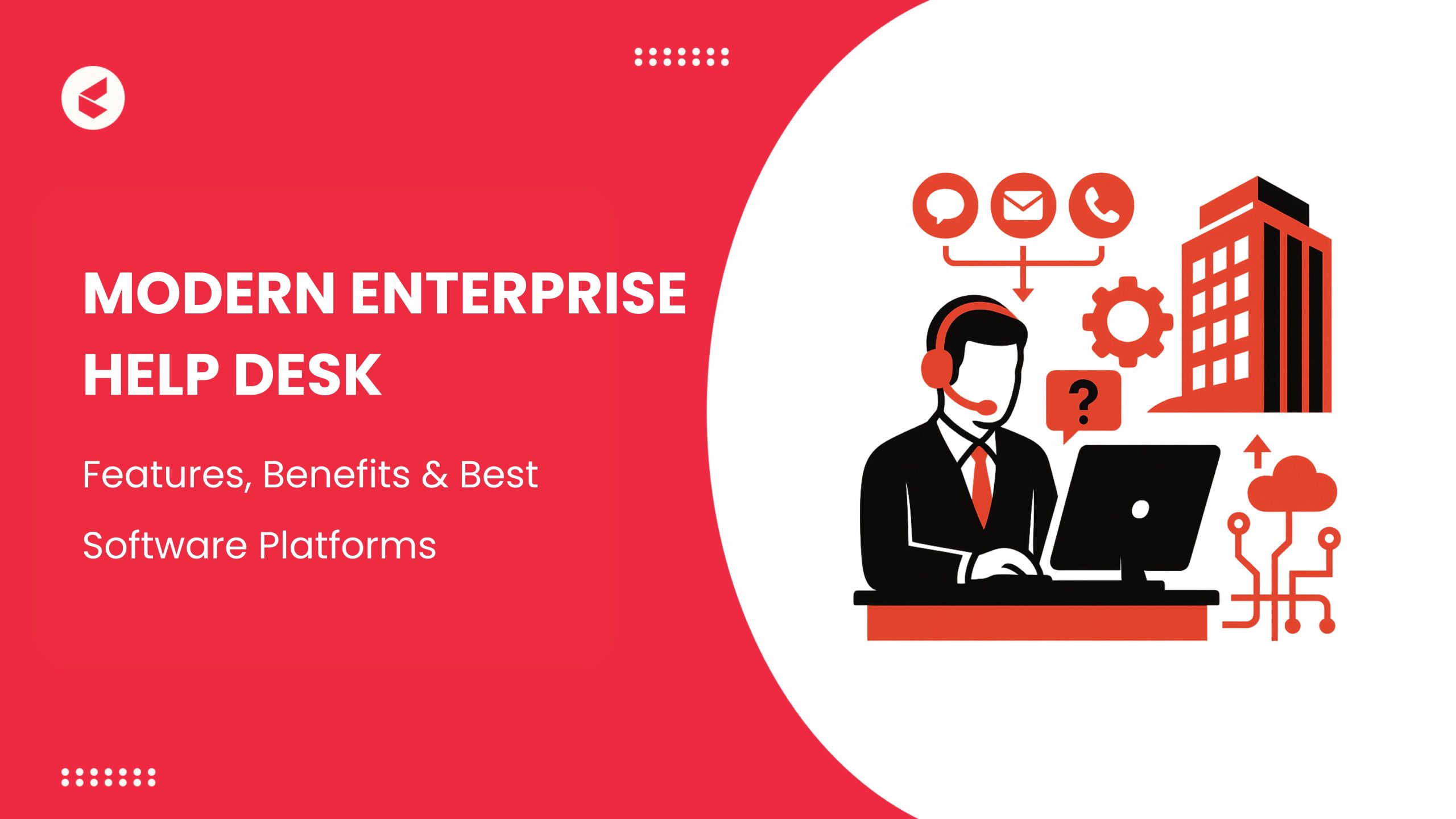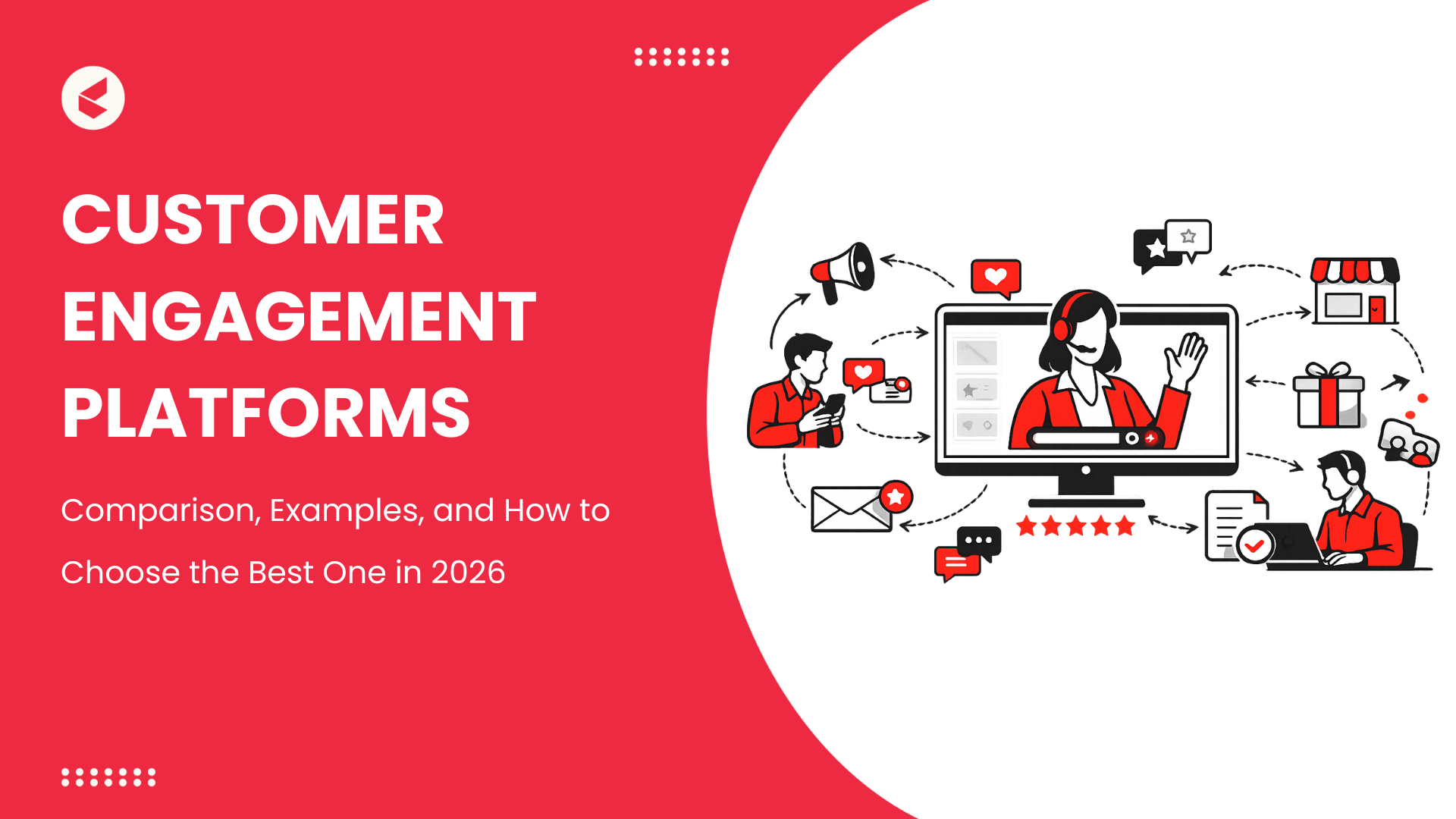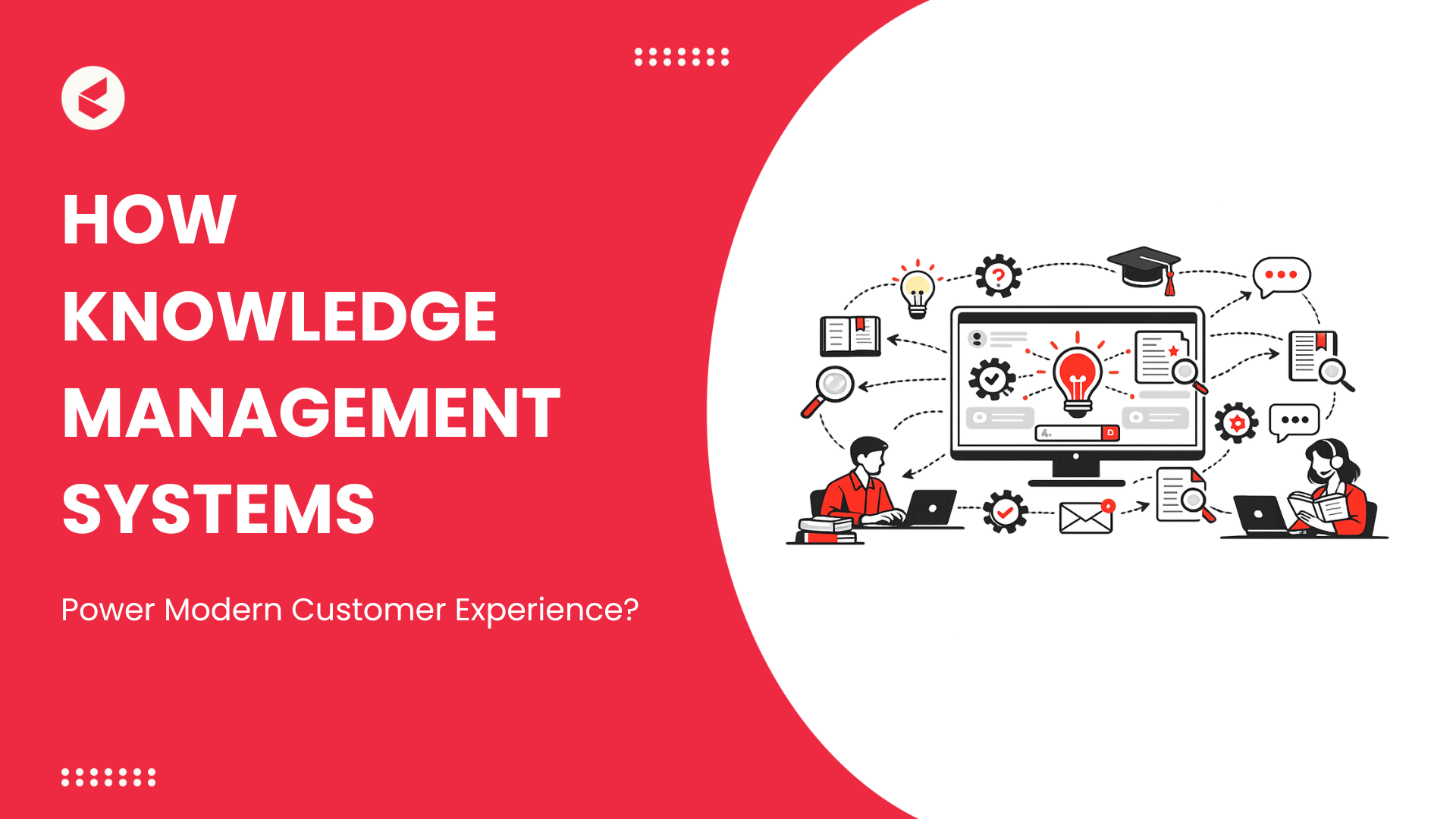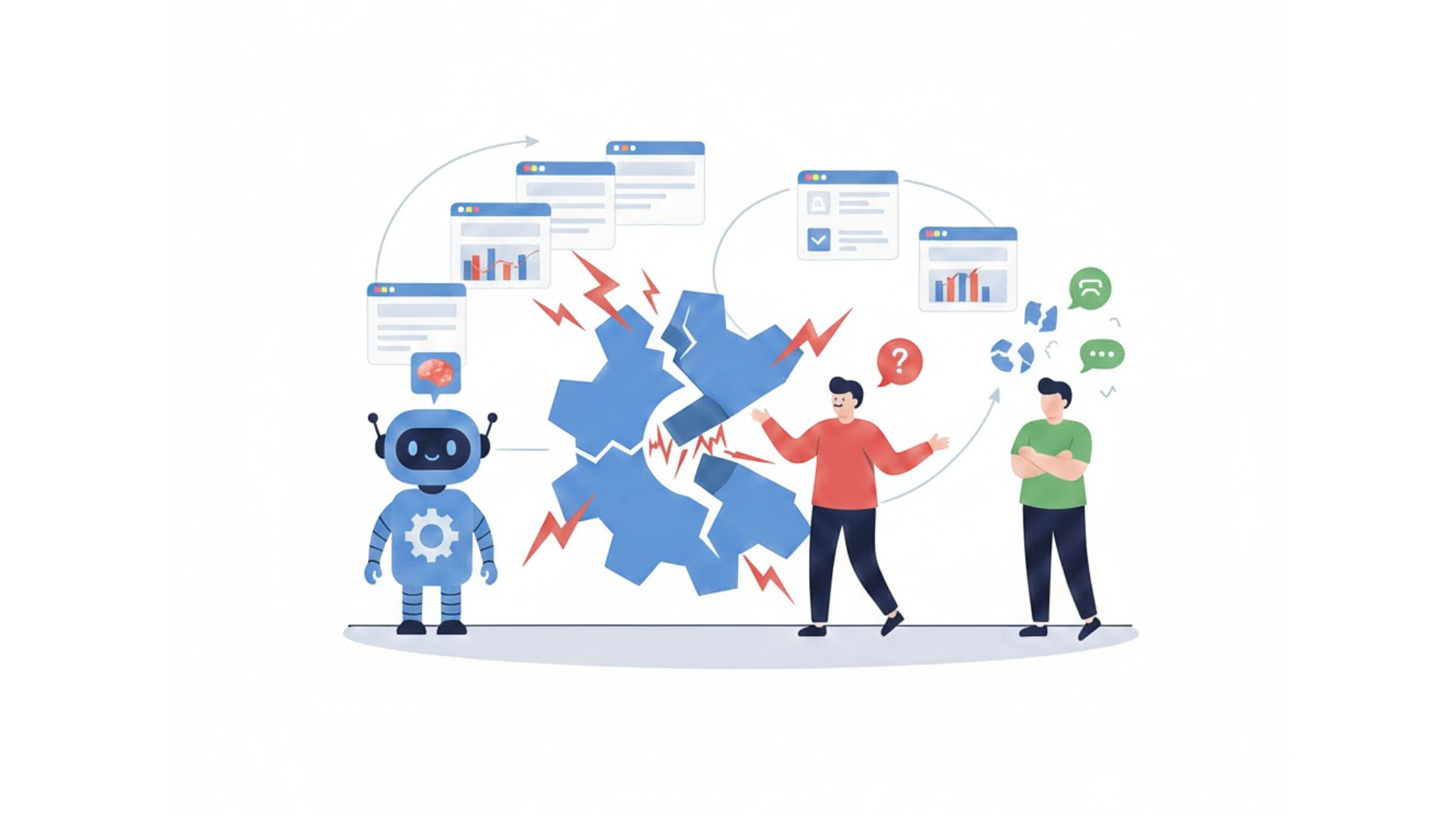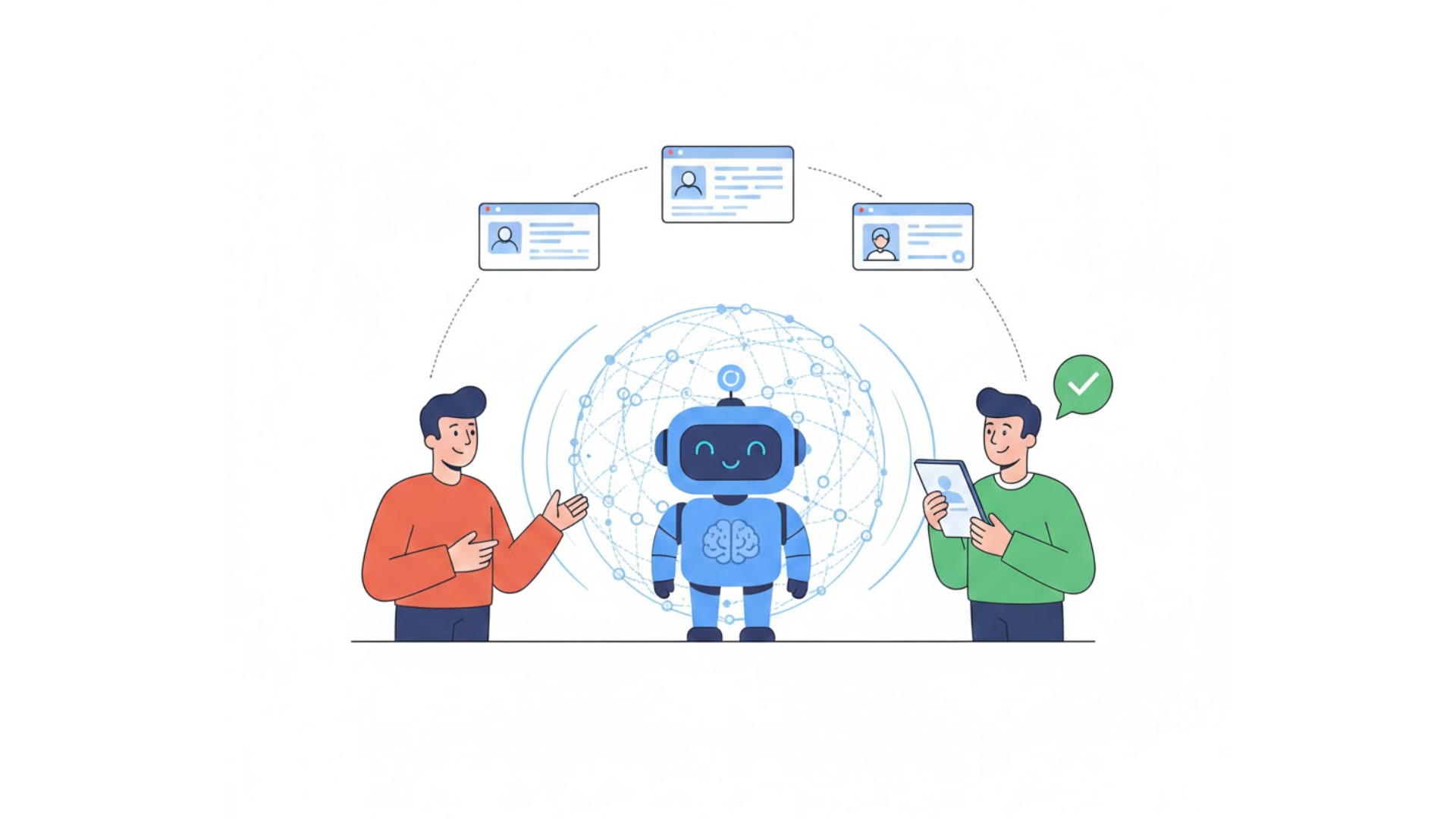Is your support staff overwhelmed by enterprise help desk tickets and a flurry of consumer inquiries? The volume of customer service inquiries and assistance needs increases as your company expands.
For big businesses, this is a commonplace situation.
As businesses expand, they face operational challenges, including employee support and customer request management.
They require AI-powered knowledge bases, intuitive self-service portals, automated escalation protocols, and seamless communication tools to deliver consistent and scalable enterprise help desk support. Enter the modern enterprise help desk software! It is an all-in-one solution that aids in resolving these problems and expediting tasks.
This blog offers a comprehensive understanding of a modern enterprise help desk and its use cases. Let’s dive in!
What is a Modern Enterprise Help Desk?
The modern enterprise help desk is a centralized system or team inside a company that handles customer or employee assistance inquiries. Businesses can provide effective, tailored assistance on a broad scale with this kind of help desk.
For instance, employees of a major company use an enterprise help desk platform to submit tickets for technical difficulties such as hardware malfunctions or access problems. These issues are effectively prioritized and fixed by the support staff.
Some of the common use cases of an enterprise help desk are:
- Knowledge base access for self-service support
- Service request fulfillment
- Troubleshooting
- Account access management
- Reporting and analytics
- Incident management for ITSM compatibility
This holistic approach ensures that teams resolve issues faster and deliver a superior user experience, whether the “user” is an employee, partner, or customer.
Why Enterprises Need a Modern, AI-Powered Help Desk
The traditional help desk systems in enterprises have been plagued with knowledge silos and inefficient ticketing systems.
However, AI-powered enterprise help desks support teams by automating tedious manual tasks and providing additional features that enhance efficiency.
Here are the top reasons why enterprises of today require AI-powered help desk solutions.
1. Intelligent Automation for Seamless Workflows
More sophisticated automation features than just ticket routing are integrated into modern AI. Using natural language processing (NLP), AI can understand complex inquiries and manage multi-layered interactions with minimal human assistance.
This results in a more efficient support workflow where teams can concentrate on key goals as repetitive operations are intelligently automated.
2. Better Response Times
AI-powered help desks reduce response times through a two-step process:
- Use NLP to understand queries.
- Apply machine learning models to categorize and prioritize issues.
Hence, chatbots and automated processes offer prompt, relevant responses and effectively handle tickets.
3. 24/7 Support and Improved UX
Modern enterprises can’t afford to have support limited to business hours.
AI chatbots and virtual assistants enable round-the-clock support to resolve common questions instantly. This continuous accessibility enhances the user experience for international or remote teams operating in multiple time zones.
It also lessens the inconvenience that comes with waiting for assistance.
4. Proactive Issue Identification
AI has the capacity to analyze vast amounts of data in order to spot trends and anticipate possible issues before they become serious.
Businesses can put this proactive strategy to good use for
- Minimizing downtime
- Handling recurring problems
- Carrying out preventative maintenance
Such preparedness ensures improved reliability and smoother operations in addition to cost savings.
How Enterprise Help Desks Impact Customer Experience
According to Forbes, 86% of consumers are open to switching brands if they receive superior customer service from another business. Apart from boosting ROI, superior CX helps position you as an industry leader.
Here are the top ways enterprise help desks impact CX!
1 . Improves Customer Satisfaction
Enterprise help desks increase customer satisfaction by offering timely, effective assistance. Resolving problems quickly lowers customer effort (CES) and increases CSAT scores.
Well-organized systems make sure customers are acknowledged, which promotes positive interactions and higher satisfaction levels.
2. Builds Customer Loyalty
Help desks offer consistent, personalized support that builds customer loyalty. In fact, a Forbes report states that 95% of customers claim customer service affects their brand loyalty.
Customer history-tracking help desks that track customer history enable customized solutions and encourage repeat business. Additionally, high-quality support directly improves Net Promoter Score (NPS), which means customers are more likely to recommend the brand.
3. Enhances Proactive Engagement
Help desks use analytics to predict customer demands and resolve possible problems before they become more serious.
Proactive outreach shows concern and builds a sense of collaboration. This kind of interaction increases lasting allegiance.
Key Features that Define an Enterprise-Grade Help Desk
Apart from excellent CX, enterprise help desks are a must-have for scalability. They come with an extensive array of advanced features.
Here is a quick snapshot of the top help desk features!
1. Automation
AI-powered help desks must feature advanced automation capabilities to streamline repetitive tasks, such as:
- Ticket routing
- Prioritization
- Notifications
2. SLA Workflows
Enterprise support revolves around the maintenance of service-level agreements, or SLAs. The help desk enforces SLAs through:
- Automated alerts
- Escalations and tracking
- Ensuring that tickets are addressed within predefined timeframes
- Maintaining high service standards
3. Omnichannel Support
Customers expect support across multiple channels, including:
- Web portals
- Social media
- Chat
- Phone calls
An omnichannel help desk platform gives agents a comprehensive perspective by combining all interactions into a single interface. This makes consistent, context-aware support possible.
4. Integrations
An enterprise help desk offers seamless integration with existing enterprise tools such as:
- CRM
- ERP
- knowledge bases
- monitoring systems
These integrations not only simplify workflows but also enable thorough issue resolution.
5. AI and Machine Learning Capabilities
AI features in an enterprise help desk not only enhance customer satisfaction but also significantly improve agent productivity. These include:
- Chatbots
- Intelligent ticket categorization
- Sentiment analysis
- Predictive analytics
While chatbots and automated categorization reduce the manual workload for agents, predictive insights help support teams proactively manage issues before they escalate. This dual impact ensures faster resolutions, optimized workflows, and better overall customer experiences.
6. Knowledge Base Management
Strong knowledge management allows for easy creation and access to self-service articles and FAQs.
This minimizes the support workload and gives customers the ability to autonomously fix common problems.
7. Ticket Management
An effective ticket management system enables instant identification of issues classified according to their category and level of urgency.
Some of the top examples of ticket management capabilities are ticket assignment and integration with other management systems for improved efficiency.
8. Role-Based Access and Permissions
Enterprise support requires strict access controls. Hence, an advanced help desk offers role-based permissions to ensure that agents and other stakeholders access only relevant information.
9. Reporting and Analytics
An enterprise help desk provides comprehensive dashboards and analytics to offer information on customer satisfaction scores and agent productivity.
Furthermore, data-driven choices support ongoing process optimization and service quality improvement.
10. Self-Service Options
The self-service capabilities of enterprise support desks are yet another noteworthy feature. To assist users, they offer
- Comprehensive knowledge bases
- Frequently Asked Questions
- Detailed guidelines
- AI chatbots
- Sophisticated search features
Top 5 Enterprise Help Desk Solutions
Let’s take into consideration the top enterprise help desk software available to optimize customer support and operational efficiency.
1. Kapture CX
Kapture CX is an AI-powered automation platform that offers advanced enterprise help desk solutions. It works well for companies that aim to provide a highly customized consumer experience at every point of contact.
Features
- Omnichannel Ticketing
- self-service knowledge base
- AI-powered ticket assignment
- Customizable Dashboards
- High-end integrations
- SLA tracking
2. Salesforce Service Cloud
Salesforce Service Cloud creates a support experience that is intricately linked with client data by bringing CRM expertise to help desk processes.
Features
- 360-degree customer perspective
- Automated routine task execution
- Multi-channel handling of customer interactions
- Knowledge management system
3. Zendesk for Enterprises
Zendesk for Enterprises is a powerful cloud-based customer support tool created to improve and expedite customer service for large-scale businesses.
Features
- Flexible ticket fields and formats for internal requests
- Comprehensive knowledge base
- Automated ticket sorting and routing workflows
4. Freshservice by Freshworks
Freshservice by Freshworks is an AI-driven, combined IT and employee service management system. It is intended to make customer support ticketing easy and effective.
Features
- AI-driven ticket prioritization and classification
- Quick agent responses with a canned response library
- Tools for SLA management that track response times
- Operations for automated escalation
5. Zoho Desk + Zoho One ERP
The Zoho suite includes two separate yet complementary platforms: Zoho Desk and Zoho One. They offer strong automation features for effective customer service.
Features
- Streamlined ticket assignment
- System for managing notifications
- Analytics and reporting for customer service
- Simple integration with additional Zoho apps
What to Look for in an Enterprise Help Desk Solution
It might seem tricky to choose the best enterprise help desk solution that aligns with your business goals. However, considering the following key factors can make the process easy and fruitful.
1. Scalability
Look for enterprise help desk software that can grow with your business. This meanshandling more users, tickets, and complex workflows seamlessly.
2. Security and Compliance
Your help desk will handle sensitive data, so robust security features are a must—think encryption, role-based access, and regular audits.
Plus, ensure the solution complies with industry standards like
- GDPR
- HIPAA
- SOC 2
3. Integration Flexibility
Your help desk should work well with the tools you already have, such as
- Asset management
- Communication channels
- CRM systems
A solution that offers open APIs or pre-built integrations can fit seamlessly into your tech ecosystem.
Common Challenges Enterprises Face Without a Dedicated Help Desk
Let’s take a look at some of the most common issues businesses usually face without an up-to-date help desk!
1. Inefficient Issue Resolution
Without a dedicated Help Desk, support requests often get lost or delayed. Employees and customers may experience long wait times and decreased productivity.
2. Lack of Centralized Tracking
Without a centralized help desk system, it’s difficult to monitor
- Ongoing support tickets
- Prioritize urgent issues
This disorganization hampers the support team’s ability to respond effectively and impedes data-driven improvements.
3. Inconsistent Support Quality
The quality of support might vary greatly in the absence of established help desk processes and tools.
Some issues may be resolved quickly, while others linger, leading to inconsistent UX and dissatisfaction.
4. Increased Operational Costs
Relying on manual processes or ad hoc support methods often results in duplicated efforts and higher operational costs.
Thereby, a lack of automation and streamlined workflows further exacerbates these issues.
Why an Enterprise Help Desk is a Better Fit Than ERP for Managing Support
An Enterprise help desk is better for support because it focuses specifically on
- Managing tickets
- Resolving issues quickly
- Providing a user-friendly experience
Unlike an ERP, which handles broader business processes, a help desk is designed to improve support responsiveness.
Here is a brief table that pinpoints the key differences between an enterprise help desk and ERP.
While ERPs manage core business functions like payroll or inventory, they’re not built to manage IT tickets, HR queries, or support SLAs efficiently.
| Aspect | Enterprise Help Desk | ERP |
| Focus | Customer and internal support tickets | Business processes and resource management |
| Ticket Management | Advanced ticket tracking, prioritization, and escalation | Basic task management integrated into broader processes |
| User Experience | User-friendly interfaces tailored for support staff | Generally more complex, covering entire enterprise processes |
| Speed and Responsiveness | Rapid incident response and resolution | Longer implementation cycles, broader scope |
| Customization for Support | Customizable workflows for support scenarios | Customization is often limited to business processes |
| Integration with Support Tools | Integrates with chat, remote support, and knowledge bases | Focuses on ERP modules like finance, HR, and supply chain |
| Reporting and Analytics | Specific KPIs like SLA compliance, ticket volume | Broader business metrics, less support-focused |
| Implementation | Typically quicker and less costly to implement | Longer, more complex implementation processes |
Benefits of an Enterprise Help Desk for Customer Service
A centralized enterprise help desk simplifies the management of support requests by bringing all interactions into a single platform. This unified system eliminates the inefficiencies of juggling multiple communication channels and ensures every ticket follows a structured, accountable path — from initiation to resolution.
Enterprise help desks also enable intelligent ticket routing, SLA enforcement, and real-time visibility into support operations. This empowers teams to identify bottlenecks, track performance metrics, and continuously optimize workflows.
Ultimately, it helps you deliver more personalized, efficient service — reducing downtime and improving the support experience for both employees and customers.
How Kapture CX Helps You Build a Scalable Enterprise Help Desk?
Kapture is an AI-powered, adaptable CX platform that assists businesses in creating a scalable enterprise help desk that can grow with support requirements.
Here are some of the top offerings of Kapture CX to help you design a powerful enterprise help desk.
1. Self-Service
Kapture’s self-service bots are powered by vertical LLMs—specialized language models trained for specific industries. They deliver intuitive, human-like support tailored to each customer’s needs with high accuracy.
2. Advanced Ticketing
When human intervention is required, Kapture’s AI-powered smart routing ensures tickets are directed to the right agent—someone available at the right time and equipped with the necessary expertise. This leads to faster and more effective resolutions.
3. Reports and Analytics
Kapture CX offers real-time analytics on SLA adherence and support performance. Recurring issues or bottlenecks can be identified early, allowing for proactive intervention and continuous service improvement.
4. GenAI Surveys and Feedback Management
After resolving issues, GenAI-powered surveys simplify feedback collection. All responses are consolidated into a single dashboard, enabling teams to quickly identify improvement areas.
5. Conversational Intelligence
By analyzing millions of interactions, Kapture uncovers deeper customer needs. These insights help refine support strategies and create more meaningful, personalized experiences.
6. Workspace Collaboration
Kapture seamlessly connects teams across regions and departments by integrating with tools like Slack, Trello, Asana, and others. This improves cross-functional coordination and reduces service silos.
7. Sentiment Analysis
Real-time sentiment analysis offers de-escalation recommendations, ensuring that sensitive interactions are managed empathetically—ultimately reducing churn and improving customer satisfaction.
Bolster Support Efficiency with AI-Powered Enterprise Help Desk!
AI-powered enterprise help desks focus on scalable solutions that respond to expanding organizational needs.
Traditional support systems find it difficult to keep up with the growth of enterprises. This leads to delays and dissatisfied customers. Whereas, AI-driven help desks provide outstanding assistance by ensuring quick response times and reliable service quality.
Explore effective enterprise help desk solutions with Kapture CX to deliver outstanding customer experiences.
Schedule a personalized demo to learn more about Kapture CX’s tailored helpdesk solutions.
FAQs
Modern enterprise help desks in 2026 will include features like AI-driven automation, multi-channel support, advanced analytics, and seamless integration.
Businesses can measure help desk effectiveness through key performance indicators such as
– Response time
– Customer satisfaction scores
– Ticket volume trends
AI is transforming help desk operations by automating routine tasks and providing intelligent chatbots for 24/7 support.
An enterprise service desk offers comprehensive IT support with a primary focus on incident management and executing departmental service requests.
On the other hand, a help desk focuses on offering general troubleshooting support.
Enterprise help desks enhance ITSM by streamlining ticketing, automating workflows, and ensuring service level agreement (SLA) compliance. For employees, they enable faster issue resolution, better self-service, and a smoother, more productive support experience.
